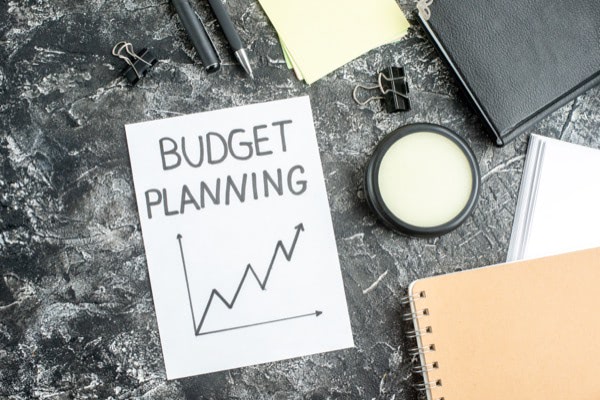Is mortgage default insurance in your future? Here, we review 4 common questions about this product to help you understand how it works!

4 tips to help budget for a home in today’s market
Planning on buying a home? In today’s housing market, buying a home can be an exciting experience, but it’s also easy to feel a little stressed. Interest rates, housing prices, and supply and demand have all gone through big fluctuations over the past few years. This means it’s super important to properly budget for a home! Proper budgeting will make your buying experience much smoother, and will help you avoid financial stressors down the road. Before diving into the housing market, here four essential tips to help you budget for a home in today’s market!
#1 Evaluate your financial health
One of the most important first steps is to carefully evaluate your financial situation. Your finances incorporate everything from your income to your expenses, assets, debts, and savings. Understanding your position in all of these areas will help you create an accurate budget later on. Take some time to assess where your money comes from and where it goes, and how much you think you could spend on monthly mortgage payments. Your credit score is also a helpful indicator of your financial health. The higher your score, the more likely you are to secure a mortgage with the best rates. Credit scores above 650 are generally what buyers should aim for. If your credit score is a bit low, you can take some time to improve it before applying for a mortgage. This might involve paying off debts, or spending time ensuring you are making payments on time. In the long run, this will help you budget for a home because it will help you secure the best mortgage rates.
#2 Determine your budget
After examining your financial situation, you can move onto creating the budget for your future home! This should take into account all the costs involved with homeownership, such as your down payment, closing costs, and ongoing expenses. All of this will compare with housing prices in the area you are hoping to buy. We will discuss down payments in more detail below, but most down payments must be between five and 20 per cent of the home’s purchase price. This depends on the cost of the home. In any case, you must budget to spend tens of thousands of dollars upfront. Apart from your down payment, you will also need to budget for closing costs, which often fall around two per cent of your home’s purchase price. These include legal fees, land transfer tax, and moving costs. After the sale closes, you will be working with ongoing mortgage payments and other maintenance costs. These will heavily depend on your down payment and mortgage rate!
#3 Save for a down payment
Your down payment is the biggest one-time expense to consider when you budget for a home. Depending on your home’s purchase price, your down payment requirements will vary. Homes up to $500,000 only require a down payment of five per cent. Houses between $500,000 and $1 million require five per cent on the first $500,000, and 10 per cent on the remaining balance. Homes over $1 million need a full 20 per cent. However, any home with a down payment below 20 per cent requires mortgage default insurance, which is an additional cost. The more you can put down for your mortgage payment upfront, the lower your monthly payments will be, and you might be able to avoid this insurance. When saving for your down payment, be deliberate about setting money aside and making use of any savings accounts you have. This will help ensure you save the amount you need within the timeframe you desire.
#4 Get your mortgage pre-approval
As always, we will end with the importance of getting your mortgage pre-approval! This process is critical when budgeting for a home, because it helps you dig deep into what you can afford, and your position in the housing market. As a quick reminder, a pre-approval involves a potential lender performing a preliminary assessment of your finances. From this, they determine the mortgage amount you may qualify for, under the current circumstances. While this is just an estimate and not a guarantee of financing, it helps direct your next steps. For example, it may reveal you should try to save more, improve your credit score, or pay off more debt to improve your power as a borrower. Having this knowledge will help you feel more confident when it comes time to secure that final approval.
It can be a challenge to properly budget for a home, but these steps will help you get on the right track! Plus, reaching out to a mortgage broker as soon as possible will ensure you get off on the right foot and maintain a successful experience throughout your journey. We are here to guide you towards your perfect home, lender, and mortgage product!
If you have any questions about your mortgage, give us a call at Centum Home Lenders! You can reach us at 506-854-6847, or get in touch with us here.


